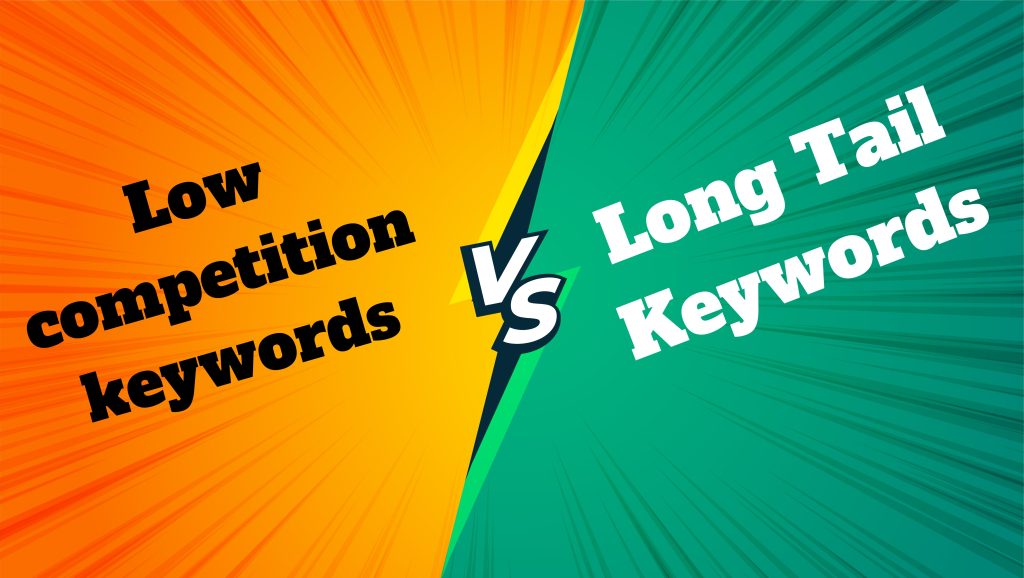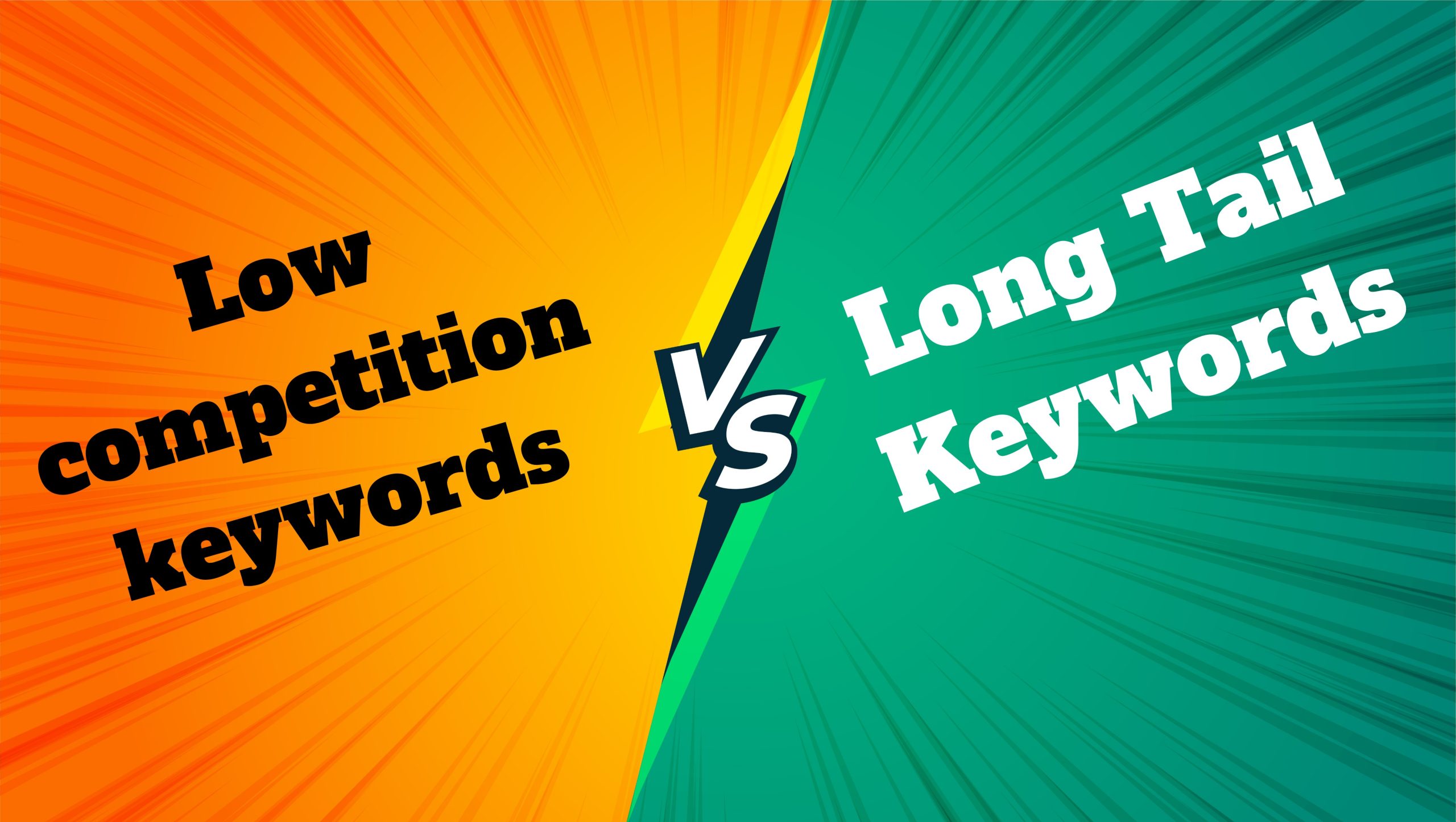
In SEO, Low competition keywords and long-tail keywords are both important concepts Let’s take a closer look at each of them:
Low Competition Keywords:
These are specific keywords or phrases that have relatively low competition in search engine rankings. Low competition keywords typically have fewer websites targeting them, which makes it easier to rank higher in search engine results pages (SERPs).
These keywords often have lower search volumes compared to broader, more competitive terms.
However, they can still be valuable if they align with your content or business niche and attract relevant traffic.
Targeting low competition keywords can be an effective strategy for newer websites or businesses that want to establish their online presence and gradually build their rankings.
Long-Tail Keywords:
Long-tail keywords are longer, more specific phrases that usually consist of three or more words. They are more specific than general keywords and often indicate a higher level of user intent.
Long-tail keywords tend to have lower search volumes but are highly targeted and can attract more qualified traffic. Due to their specificity, long-tail keywords typically have lower competition, making it easier to rank for them.
These keywords can be especially beneficial for niche businesses or websites looking to target a specific audience.
Long-tail keywords also provide an opportunity to capture highly engaged users who are further along in the buying cycle.
The choice between low competition keywords and long-tail keywords depends on your specific goals, target audience, and the nature of your website or business.
If you’re starting out and looking to build your online presence, targeting low competition keywords can help you gain initial visibility and traction. On the other hand, if you have a niche business or want to attract highly qualified traffic, focusing on long-tail keywords can be more effective.
It’s important to conduct thorough keyword research to identify relevant low competition keywords or long-tail keywords that align with your content and audience. Tools like Google Keyword Planner, SEMrush, or Ahrefs and also Cron24 can assist you in finding suitable keywords by providing data on search volumes, competition levels, and other relevant metrics.
So ultimately the very important thing is to create high-quality & valuable content for humans that meets the search intent of your target keywords to maximize the benefits of your keyword strategy.
Thank you for reading.



